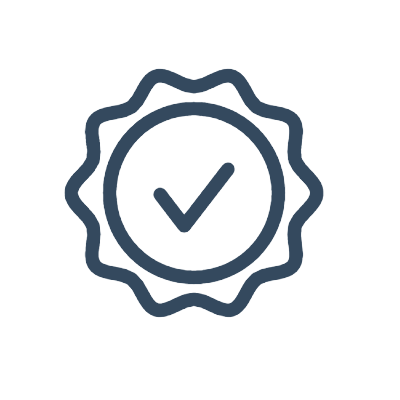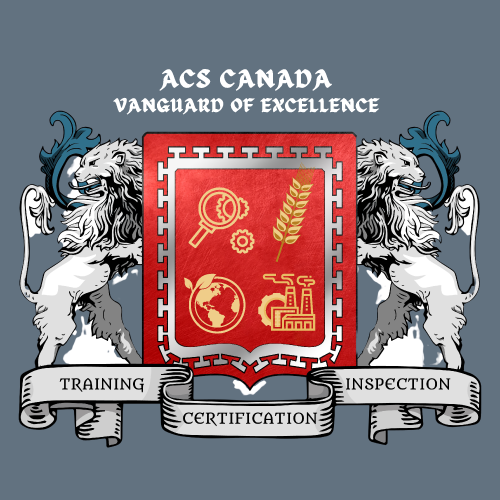QUALITY AWARDS

PRODUCTIVITY FUNCTIONAL AWARD
To ensure a comprehensive evaluation of organizations' quality and service delivery, the ACS Canada Quality Award encompasses 10 sub-sections, each with specific criteria and benchmarks that assess an organization's performance in delivering exceptional quality. Let's explore each of these sub-sections in more detail:
1. Reliability: Reliability focuses on the organization's ability to consistently deliver products or services as promised. It assesses factors such as meeting deadlines, maintaining product/service consistency, and minimizing errors or defects. Reliability instills confidence in customers, ensuring they can depend on the organization to meet their expectations consistently.
2. Responsiveness: Responsiveness measures the organization's agility and promptness in addressing customer inquiries, requests, and concerns. It assesses factors such as response times, problem-solving capabilities, and effective communication channels. Organizations that demonstrate high responsiveness show their commitment to providing timely and satisfactory resolutions to customer needs.
3. Competence: Competence evaluates the organization's level of expertise, knowledge, and skill in delivering products or services. It assesses factors such as staff qualifications, training programs, certifications, and industry-specific expertise. Competence ensures that the organization possesses the necessary capabilities to meet customer requirements with a high level of proficiency.
4. Access: Access evaluates the organization's efforts in providing ease of access to its products or services. It considers factors such as physical accessibility, availability in different locations or platforms, and user-friendly interfaces. Organizations that prioritize access make it convenient for customers to obtain their products or services, fostering a positive user experience.
5. Courtesy: Courtesy assesses the organization's approach to customer interactions, emphasizing respectful and polite behavior. It considers factors such as professional demeanor, empathy, and attentiveness in customer interactions. Courtesy creates a positive atmosphere and enhances the overall customer experience, leading to increased satisfaction and loyalty.
6. Communication: Communication evaluates the effectiveness of the organization's communication processes with customers. It considers factors such as clear and transparent communication, proactive updates, and active listening to customer feedback. Effective communication fosters understanding, manages expectations, and builds strong relationships with customers.
7. Credibility: Credibility examines the organization's reputation and trustworthiness. It assesses factors such as transparency, ethical practices, compliance with industry regulations, and adherence to established standards. Credibility builds trust among customers, demonstrating the organization's commitment to integrity and reliability.
8. Security: Security focuses on ensuring the protection of customer information and maintaining data privacy. It assesses factors such as secure data handling, robust privacy policies, and adherence to data protection regulations. Organizations that prioritize security instill confidence in customers, assuring them that their sensitive information is handled with utmost care.
9. Customer Satisfaction: Customer Satisfaction measures the overall satisfaction levels of customers with the organization's products or services. It considers factors such as customer feedback, surveys, and reviews. High customer satisfaction reflects the organization's ability to meet or exceed customer expectations and is a testament to the quality of their offerings.
10. Establishment of Related Quality and Safety Standards: This sub-section evaluates the organization's efforts to establish and comply with relevant quality and safety standards specific to its industry. It assesses factors such as quality control processes, adherence to regulatory requirements, and implementation of industry best practices. Organizations that establish and uphold these standards demonstrate their commitment to delivering safe and high-quality products or services.
By categorizing the assessment into these 10 sub-sections, the ACS Canada Quality Award provides a holistic evaluation framework. It enables organizations to identify their strengths and areas for improvement, fostering continuous enhancement and ensuring a consistent focus on delivering exceptional quality and service to customers.
Training at ACS Canada
ACS employs accelerated learning methods to ensure a comprehensive grasp of all certificates. Our approach involves contextualizing your learning through a wide array of options, including classroom instruction, workshops, as well as interactive and online sessions.
QUALITY AWARDS Training - 1

Marketing Management
By the end of this course, the participants would be able to prepare a marketing plan by marketing mix concepts, marketing segmentation, targeting & positioning (STP), and identifying consumer behavior. Why Marketing Management is a vital part of the organization: Kotler says” The future is not ahead of us. It has already happened. Unfortunately, it […]
More About This CourseQUALITY AWARDS Training - 2

Business Decision Analysis Course
The aim of this course is to define and teach the steps of the decision-making process, define the different roles played by qualitative and quantitative approaches to managerial decision making. Course Content: Decision-making process, Perform cost-revenue-profit analysis, and calculate break-even values, mathematical models for calculating break-even, maximization of profit, and minimization of costs with given […]
More About This CourseQUALITY AWARDS Training - 3

Business Statistics and Data Analysis
Every year humans are producing more and more data. The central challenge businesses and individuals face making sense of all this data we are now confronted with. This class will help introduces you to essential tools for making sense of data. Course Content: Introduction to Statistics, Descriptive Statistics (Part 1 – Tables and Graphs), Descriptive […]
More About This CourseQUALITY AWARDS Training - 4

Quantitative Methods for Business Management
This course teaches best practice quantitative methods used in conventional and sustainable business settings
More About This CourseQUALITY AWARDS Training - 5
SPC & SQC

SPC-SQC
This course aims to teach the principles and practices of basic QC tools including statistical process control, SPC, and statistical quality control, SQC.
More About This CourseQUALITY AWARDS Training - 6
QUALITY FUNCTION DEPLOYMENT

QFD Training Course
This course aims to teach the principles and practices of Quality Function Deployment, QFD.
More About This CourseQUALITY AWARDS Training - 7
STRATEGIC THINKING

STRATEGIC THINKING
Now a day , Strategic thinking is a very important practical concept, in this course we will get to know the concepts and stages of strategic thinking. Strategic Thinking is a mental synthesis process creating an integrated view of the business in mind, through creativity and intuition “Mintzberg”. Course Content: Strategic thinking definitions: Mintzberg, Porter, […]
More About This CourseQUALITY AWARDS Training - 8
Design of Experiment

Design of Experiment (DOE)
Design of Experiment (DOE) is a powerful statistical technique for improving product or process designs and solving process or production problems. DOE defines control changes to input variables in order to find cause and effect relationships with a minimum sample size. When analyzing a process, experiments are often used to evaluate which process inputs have […]
More About This CourseQUALITY AWARDS Training - 9
QMS LEAD AUDITOR

ISO 9001 – Lead Auditor
This course aims to teach the principles of QMS third-party audits. This course could be certified by Exemplar Global.
More About This CourseQUALITY AWARDS Training - 10
QMS INTERNAL AUDITOR

ISO 9001 – Internal Auditor Course
This course aims to teach the principles and practices of effective quality management system first and second-party audits.
More About This Course
